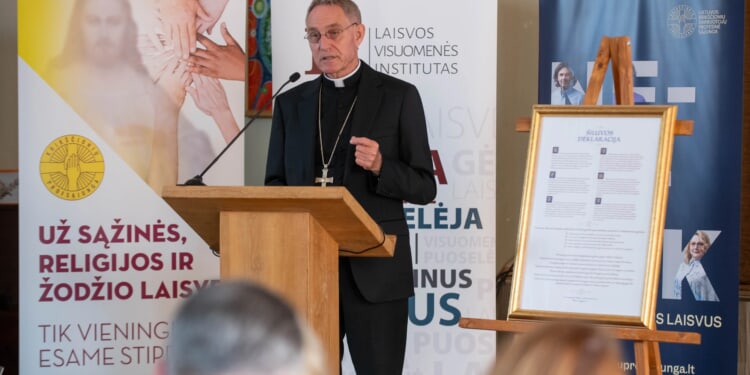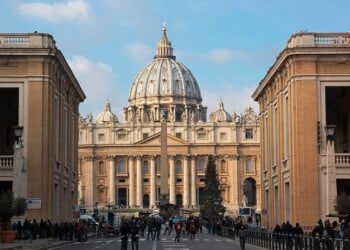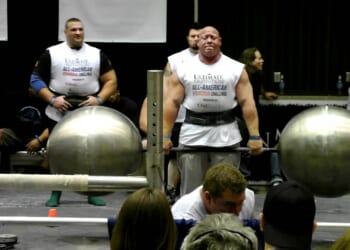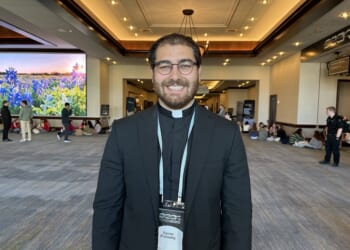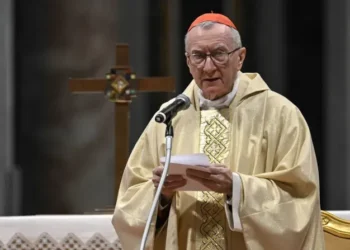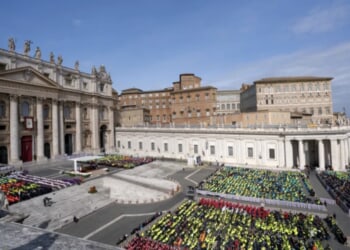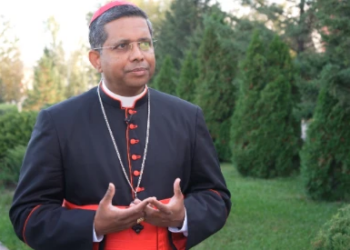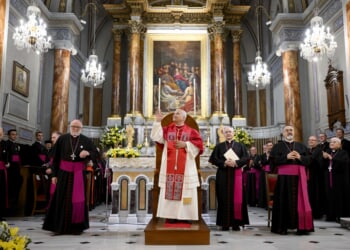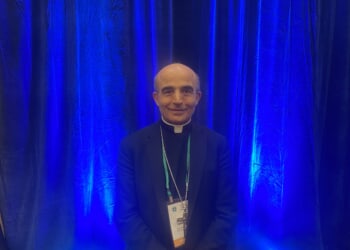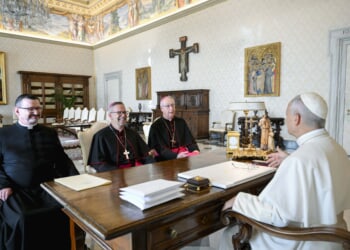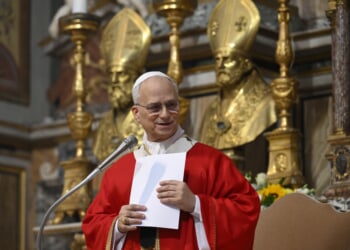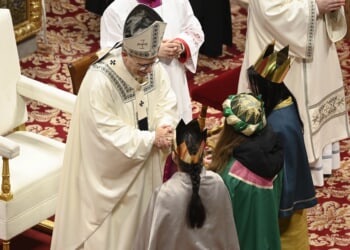Šiluva, Lithuania, Oct 29, 2025 /
15:59 pm
Twenty years after then-Cardinal Joseph Ratzinger warned of a “dictatorship of relativism” on the eve of his election as Pope Benedict XVI, his former secretary, Archbishop Georg Gänswein, echoed that warning at a recent conference in Lithuania.
The former prefect of the papal household and longtime personal secretary to Pope Benedict XVI, Gänswein drew deeply on the late pontiff’s philosophy as he delivered the keynote address at this year’s conference, which brought together academics, civic leaders, public intellectuals, and clergy to discuss the principles of the 2021 Šiluva Declaration.
The declaration advocates the defense of fundamental human rights, the fostering of virtue, and the promotion of societal common good. It recognizes the importance of a society built upon the pillars of truth, family values, human dignity, and faith in God and has since become a moral reference point for Catholic social thinkers in Lithuania.
Gänswein’s lecture offered a rich philosophical and theological reflection on faith, reason, and relativism, aspects that he described as a “constant theme in Ratzinger’s work.” The archbishop, who now serves as nuncio to the Baltic states, warned that when either faith or reason is diminished, that inevitably leads to “pathologies and the disintegration of the human person.”
This is the third such conference dedicated to reflecting on the Šiluva Declaration, published on Sept. 12, 2021, during the town’s annual Marian festival. Šiluva is the location of a Marian shrine dedicated to one of Europe’s earliest approved apparitions.
Archbishop Kęstutis Kėvalas delivered the conference’s opening remarks, urging vigilance against temptations to experiment with human nature and dignity. He also reminded attendees that the Marian shrine at Šiluva symbolizes fidelity to God’s order in creation.
“The holy place of Šiluva invites respect for the order that the Creator has given to this world,” he said.
Gänswein said that in the face of today’s great challenges, such as technical thinking and globalization, the first step must be to recover the full scope of reason. He described true reason as inherently truthful, contrasting it with relativism, which he called “an expression of weak and narrow-minded thinking … based on the false pride of believing humans cannot recognize the truth and the false humility of refusing to accept it.”
“The truth sets us free,” he added, referencing John 8:32 and noting that truth serves as the standard by which humans must measure themselves and that embracing it requires humility.
Gänswein concluded by warning that relativism — the defining mindset of modernity, which he described as “a creeping poison” — ultimately undermines human freedom. Driven by self-sufficiency and amplified by social media, relativism blinds people to truth and their ultimate purpose.
Humanity’s true goal, he affirmed, is “to come to the knowledge of the truth, which is God, and thus to attain eternal life.” His address was met with sustained applause.
The conference also featured a range of thought-provoking talks on Lithuania’s moral and political identity, the challenges of liberal democracy, post-Soviet societal changes, and the role of faith and family in public life. It concluded with a panel discussion on Europe’s moral direction, freedom of speech, and the renewal of Christian values in society.
Archbishop Gintaras Grušas of Vilnius recalled Pope Leo XIV’s words that the Church “can never be exempted from the duty to speak the truth about man and the world, using, when necessary, even harsh language that may initially cause misunderstandings.” He stressed that all Christians, including those in public life, have a duty to defend the truth, which he described as “not an abstract idea but a path along which a person discovers true freedom.”
The conference was organized jointly by the Lithuanian civic group Laisvos visuomenės institutas (Institute of a Free Society), the Lithuanian Christian Workers’ Trade Union, and the Faculty of Catholic Theology at Vytautas Magnus University.

